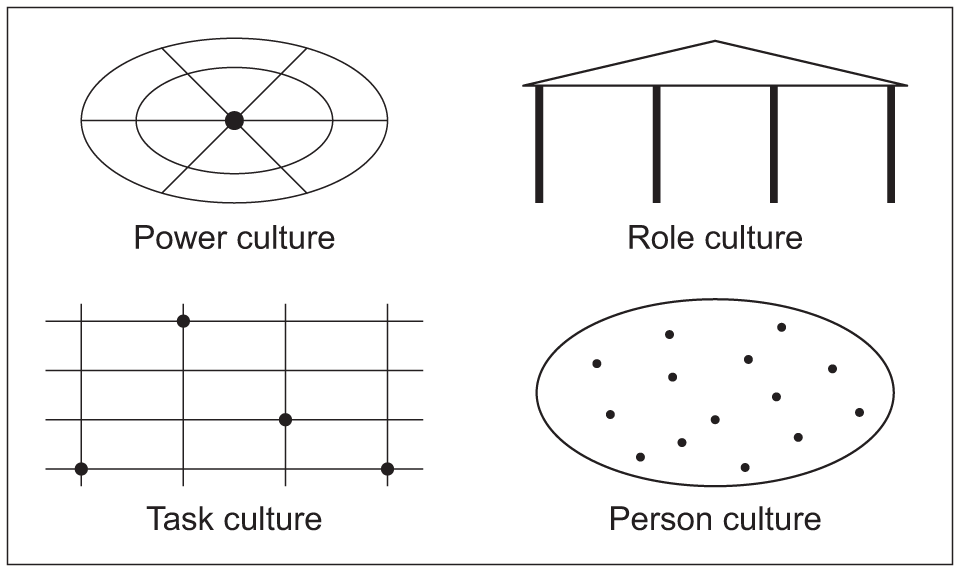Teaching guide: Handy's culture
Handy outlined four types of culture: power, role, task and person.
Model/theory

Key points
Features of these types of culture include:
Power culture
A centralised culture which focuses on key decision makers. May occur in small businesses where the founder dominates; may come under stress if a business grows and cannot all be run from the centre.
Role culture
More formalised culture with jobs having clear rules and procedures. Individuals know their position within the hierarchy. May be appropriate for a medium to large business in a stable environment; however, may lead to ‘silo’ mentality where individuals and departments do not communicate or share information.
Task culture
This is a culture where there is a focus on specific tasks and projects. Individuals are brought in to work on tasks as and when they are required, sharing ideas across functions. It may occur in organisations such as design and advertising agencies.
People or person culture
Individuals have considerable freedom to act independently. It may occur in organisations such as legal or medical practices where individuals have high levels of specialist technical expertise.
When you can use this
- When highlighting different types of culture and the advantages and disadvantages of these.
- When considering the suitability of different cultures for different types of business and in different environments.
Where it's been used
- Q14, A-level paper 1, 2017
- Q12, A-level paper 1, SAM set 2